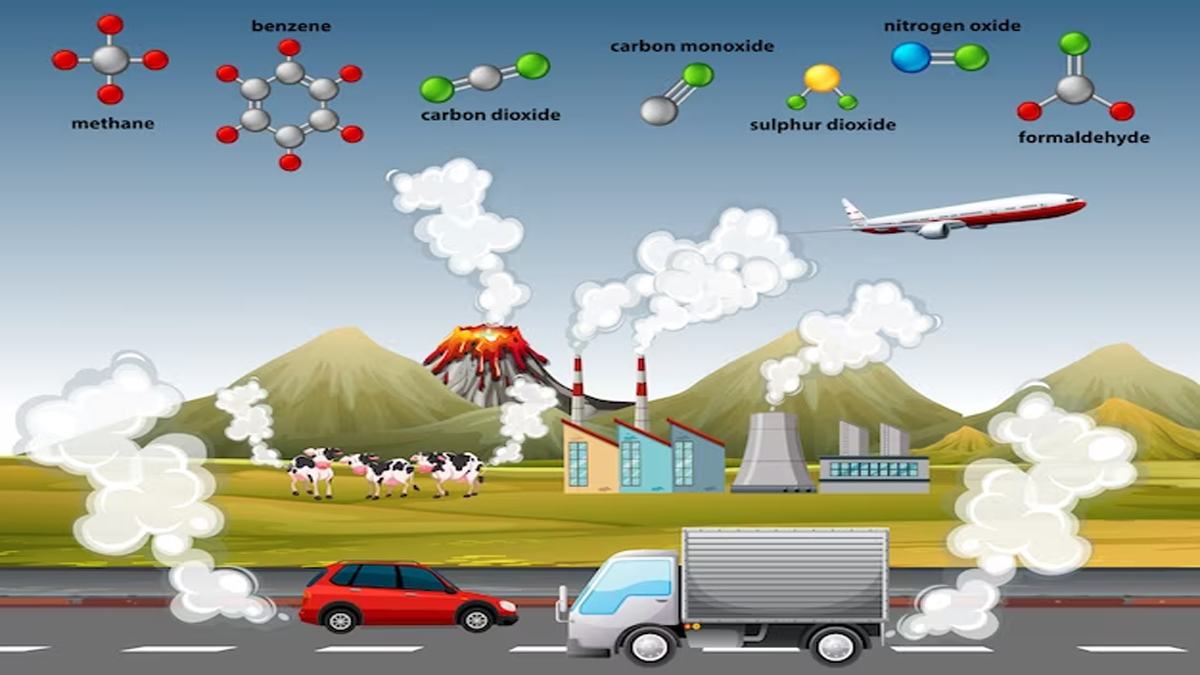It is primarily caused by various human activities and has a range of negative effects on individuals, communities, and ecosystems.
Here’s a discussion of the causes and effects of noise pollution:
Causes of Noise Pollution:
Transportation:
- Road Traffic: Vehicles, especially those with loud engines or modified exhaust systems, produce significant noise pollution.
- Air Traffic: Airplanes taking off and landing near airports generate substantial noise.
- Rail Transport: Trains passing through populated areas can create loud noise.
Industrial Activities:
- Factories and manufacturing plants often produce continuous noise from machinery and equipment.
- Construction sites generate noise from heavy machinery, drilling, and other construction-related activities.
Recreational Activities:
- Loud music from concerts, nightclubs, and outdoor events can be sources of noise pollution.
- Recreational vehicles like motorbikes, ATVs, and boats with powerful engines contribute to noise pollution.
Urbanization and Infrastructure Development:
- Expanding cities and the construction of roads, bridges, and buildings can lead to increased ambient noise levels.
- Commercial areas and urban centers often have high noise levels due to concentrated economic activity.
Household Activities:
- Home appliances like vacuum cleaners, lawnmowers, and power tools can be sources of noise.
- Barking dogs and other noisy pets can also contribute to local noise pollution.
Effects of Noise Pollution:
Health Effects:
- Hearing Damage: Prolonged exposure to high noise levels can cause permanent hearing loss.
- Stress and Anxiety: Noise pollution can lead to increased stress levels, anxiety, and sleep disturbances.
- Cardiovascular Issues: Chronic exposure to noise has been linked to elevated blood pressure, heart disease, and increased risk of heart attacks.
Cognitive Impacts:
- Difficulty Concentrating: Noise can impair concentration, hinder cognitive tasks, and reduce productivity.
- Learning Impairment: Noise pollution in schools can hinder the ability of students to learn and perform well academically.
Quality of Life:
- Interference with Communication: High noise levels can hinder communication and social interactions.
- Disruption of Peace and Quiet: Noise pollution disrupts the peace and tranquility of residential areas, affecting the quality of life.
Environmental Effects:
- Disturbance of Wildlife: Noise pollution can disrupt natural ecosystems and wildlife, affecting their behavior and reproductive patterns.
- Impact on Plant Growth: Certain plants may be sensitive to noise, leading to reduced growth and vitality.
Economic Consequences:
- Reduced Property Values: Properties located in noisy areas often have lower values.
- Healthcare Costs: Noise-related health issues can increase healthcare costs.
Legal and Regulatory Measures:
- Governments may need to enact and enforce noise regulations, which can be costly and resource-intensive.
In conclusion, noise pollution is a widespread problem caused by various human activities. Its effects range from adverse health outcomes to environmental disruptions and reduced quality of life. Mitigating noise pollution requires a combination of regulatory measures, technological advancements, and individual efforts to reduce noise emissions and protect both human health and the environment.
